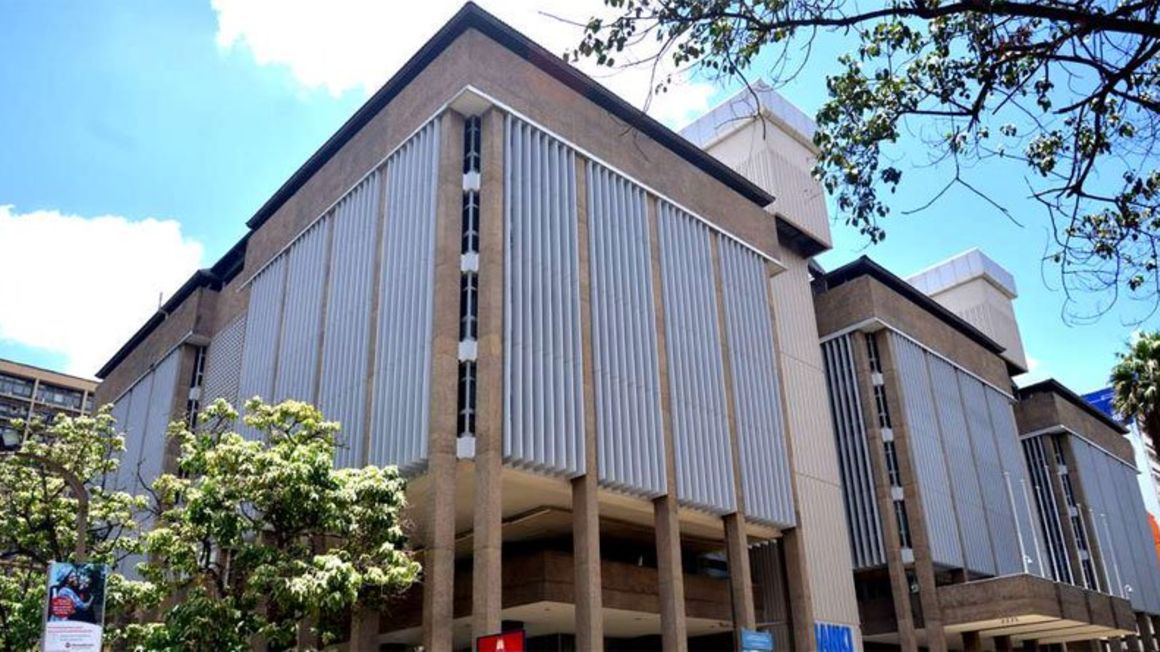
Central Bank of Kenya. FILE PHOTO | NMG
Summary
- The shilling Tuesday continued its poor run closing the day at 108.5 against the dollar, its lowest in three months on increased demand for the dollar by importers and corporates.
- With Kenya being a net importer of machinery, oil, and other secondary products, the depreciating currency is likely to increase the local price of imports.
- The local currency, which has been on a consistent decline since the month started, has now seen its value shed by two percent in a two-month period.
The shilling Tuesday continued its poor run closing the day at 108.5 against the dollar, its lowest in three months on increased demand for the dollar by importers and corporates.
With Kenya being a net importer of machinery, oil, and other secondary products, the depreciating currency is likely to increase the local price of imports.
The local currency, which has been on a consistent decline since the month started, has now seen its value shed by two percent in a two-month period.
Supported by increased dollar inflows from remittance, export earnings and tourism revenue the shilling had recovered from a low of 108.53 in April but has since taken a beating in the start of the new fiscal year.
“Supply for the dollar has been low but demand from corporates paying dividends and in need for dollars for other transactions has been high as a result the shilling has struggled,” Ken Minjire, a senior associate for debt and equity at AIB-AXYS, told the Business Daily.
Forex reserves, which play a key role in stabilising the currency fell by $250 million (Sh27 billion) last week to $9.37 billion (Sh1.01 trillion) pointing to possible debt repayment and shilling stabilisation. “Usable foreign exchange reserves remained adequate with 5.73 months of import cover which meets the statutory requirement,” said the Central Bank of Kenya in its weekly release.
Dollar inflows have also been boosted with increased diaspora remittance, which hit a record high of Sh189.4 billion ($1.75 billion) in the first half of the year, defying the persisting Covid-19 economic disruptions in the source markets.
The rise in diaspora inflows represents a 5.2 percent jump from the Sh156.86 billion sent home by Kenyans abroad in the first half of last year.
The weakening of the shilling comes in a week when the Central Bank is expected to hold its bi-monthly monetary policy committee meeting today.
Experts have, however, remained optimistic that the small depreciation will have either very little effect on inflation in the coming days.





No comments :
Post a Comment